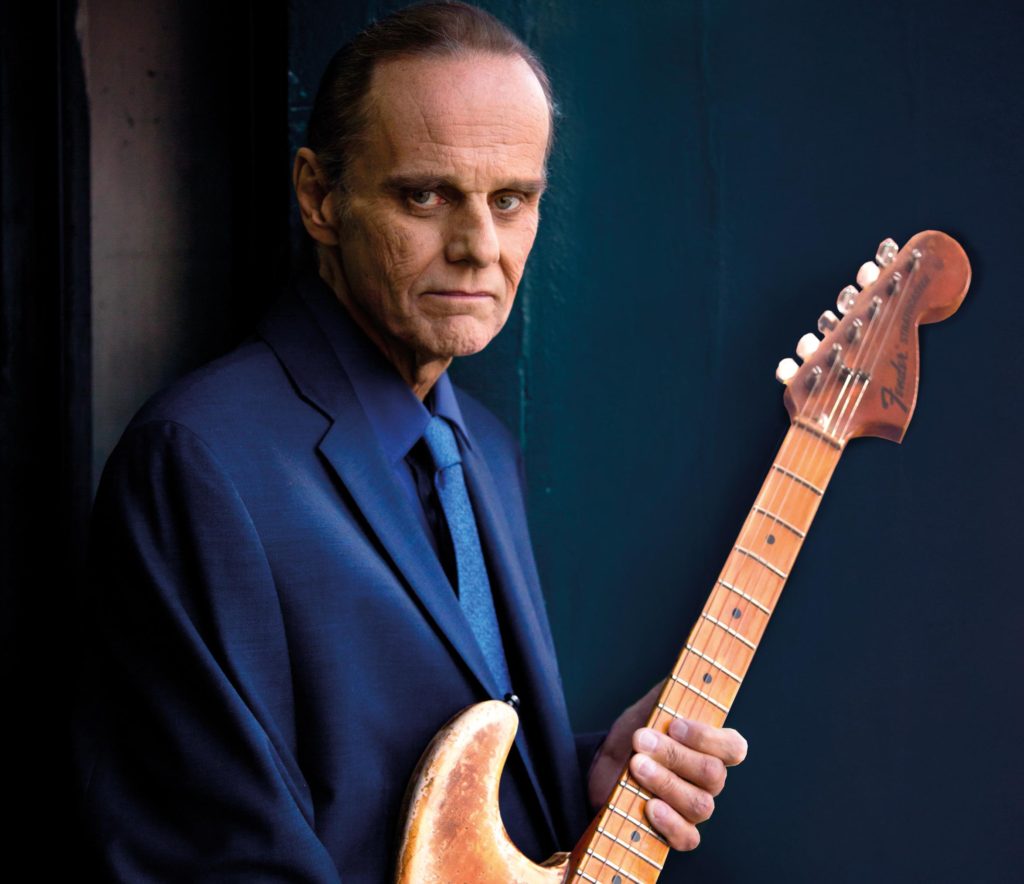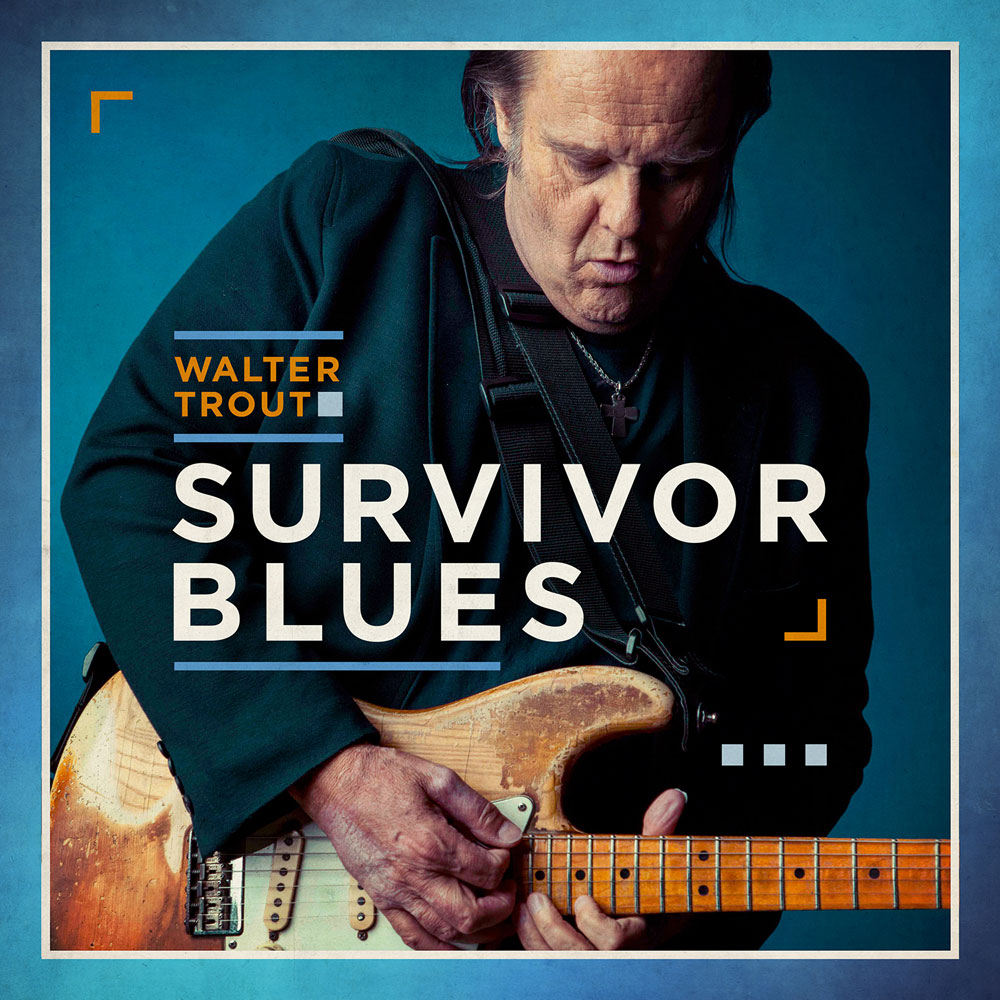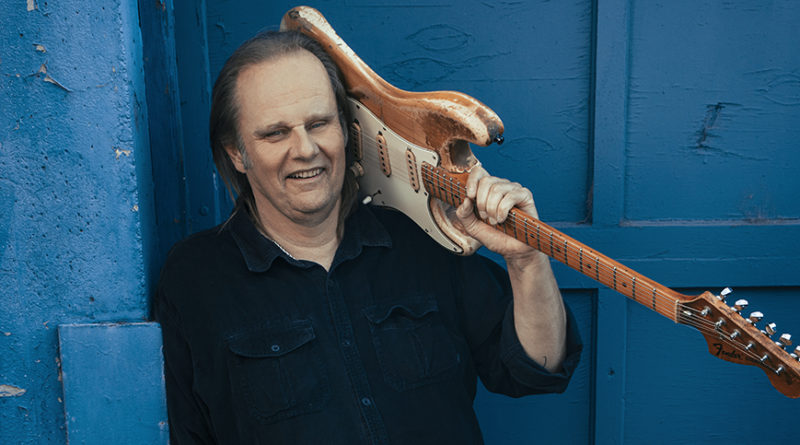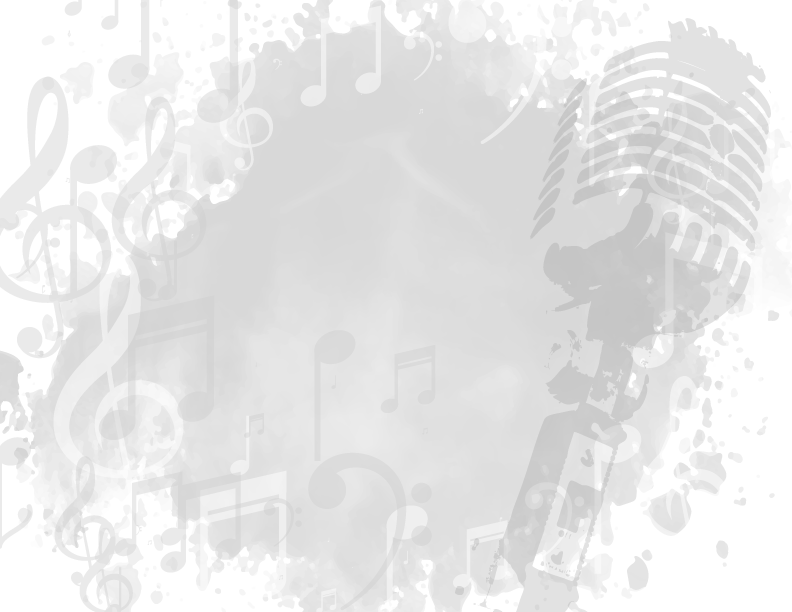Deep Down In The Blues: A Conversation With Walter Trout
Longtime and legendary blues artist Walter Trout’s latest album, “Survivor Blues,” is noteworthy in what it isn’t — a rehash of things already heard.
Instead, Trout’s 28th album is a collection of cover songs that were mined from the richer, deeper archives of a few renowned genre-mates including Jimmy Dawkins, Sunnyland Slim, Elmore James and Mississippi Fred McDowell to name a few. Though the selection process was difficult, he said, the journey back through time was a bonafide labor of love.
“This is something I’ve wanted to do for years and years,” Trout said in a phone interview. “I’ve been aware, since I was a kid, of the rich history of the blues. Since the Charlie Patton days, there’s an immense recorded history of blues, and a lot of artists who never achieved much renown, but were still amazing.”
Trout visited with ListenIowa recently to talk about the new album, his childhood meetings with Duke Ellington and B.B. King that changed his life, and more.
Your new album, “Survivor Blues,” is you covering some deep cuts of other artists rather than the tried and true standards.
These songs were incredible statements by these people, and I feel like some of it has been forgotten. Everybody wants to cover “Stormy Monday” (Bobby “Blue” Bland) and “Got My Mojo Workin’ (Muddy Waters). There are so many versions of that, and I didn’t want to do that. There’s so much there to cover and bring to people’s attention to history of this genre. It felt like the time was right. I didn’t want to do the blues greatest hits. The real difficulty was trying to narrow it down to 12 songs, because at one point I had a list of 50 to 60 tunes.
Even getting to 50 or 60 had to be difficult.
Once you start listening to it (the blues), it’s almost endless. I have a huge box set of the (Alan) Lomax Recordings, and it’s amazing stuff. I started there, then went into Charlie Patton and then moved up through the years. I took about a month, and it was great fun.
You probably rediscovered some material on the way, too.
You know, I did rediscover stuff, and actually discovered some artists I wasn’t even aware of. There’s a song called “Red Sun” by an artist named Floyd Lee, and when I heard it, I was completely devastated. I heard the lyrics and thought, “This could be Leonard Cohen.” So I covered it. There’s a lot of deeply profound stuff out there.
When you began this process, was step No. 1 deciding which B.B. King and/or John Mayall song you’d cover because of the prominent roles they played in your career?
You just hit on something there. I did really look through the catalog of both of them because they both had such a huge influence on me. I met B.B. when I was 16, and I talked to him for more than an hour that night. I went home and said to my mom, “I’m going to be blues guitar player,” and I’ve never looked back. That meeting was pivotal in my life. When I was 10, I got to spend a day with Duke Ellington, but I didn’t come out of it dedicating my life to being a jazz trumpet player, which I was at the time.
Wait. How does a 10-year-old get an audience with Duke Ellington?
(laughs) My parents knew I loved music, and they were always taking me to see live music. When I was a little boy, my mom took me to see James Brown, Ray Charles, Ella Fitzgerald, Tony Bennett, Lou Rawls and Ahmad Jamal. My dad used to take me to black jazz clubs in Atlantic City, and we’d be the only white people there. We would be treated like royalty. They’d put us at a front table, and it was awesome. It was my 10th birthday, and my mom told me that Duke Ellington was playing at the Camden County Music Fair in Cherry Hill, New Jersey, which was right down the road from where we lived. So we drove to there at about 2 in the afternoon, and we were there at the box office when these cars drove up. These very well dressed black gentlemen started getting out of the cars carrying horn cases. It was the orchestra, and mom goes, “Come with me.” So we went around the side, and she knocked on the stage door and said, “My son is an aspiring trumpet player who loves Duke Ellington. Do you think he could get an autograph?” Two minutes later, we were led into a hallway, and Paul Gonsalves, the saxophone player, walks by. I said, “Paul Gonsalves!” and he looked at me, and I told him I loved the solo he played on “Diminuendo and Crescendo in Blue.” So he looks at me and goes, “Come with me.” He led me into a dressing room, and there’s Duke, and there’s the orchestra, and there’s Tony Bennett. Paul told Duke I loved “Diminuendo…” and asked me what else I liked. I told him I liked the way Johnny Hodges played “Mood Indigo,” and he goes, “Hey, Johnny. Come here. This kid loves your playing.” All of a sudden, I’m spending the afternoon with the orchestra! Cat Anderson gave me a trumpet lesson. It was unbelievable. I sat down with Duke on the couch, and he said, “So, you want to be musician, huh?” It was a big day.
Truly a pivotal moment in your life.
Yeah. He was so warm and charismatic and gracious and regal. But they’re not all like that. When I was 15, I met Buddy Rich and [afterward] thought I didn’t want to be a musician. It was the exact opposite. So now when I meet young people at my shows, I think, “Here’s somebody who is young and impressionable. You can be Duke Ellington, or you can be Buddy Rich.”
And then there was the meeting with B.B. King.
The B.B. meeting …. I was a changed person. With the B.B. song on the album (“Please Love Me”), what attracted me to it was the actual melody. It’s a blues song, but it’s sung in major scales, which is different than a lot of blues tunes, so it kind of reached out to me and signaled that it was the one. And then when Mr. Mayall called me up to join his band, I knew my life had changed forever. I knew I had entered a whole different level of being a musician with that phone call. The Mayall song (“Nature’s Disappearing”), I think, is more relevant today than when he wrote it in 1970, with what is happening in our country right now. I think it has brand new meaning.
What was your approach with the songs once you got into the studio to record them?
We did as much live playing as we could, which is why we tracked at Robbie Krieger’s studio where you can set up in a circle and face each other and play. We tried to do as much of that as possible. I wasn’t out to imitate the originals. It’s one thing to do cover songs, but you try to own the song and make it your own. We took different approaches with these songs, and some of them we even did in a couple of different ways and picked the one that was the best.
So someday we may get to hear the alternate take.
Probably not. (laughs) Sometime if you’re in my living room I’ll play it for you, but other than that, it will remain in the archives.
You mentioned recording at Robbie Krieger’s studio. He’s a legend from another genre, so how did you guys connect?
I know he was in The Doors, and they were this amazing, iconic, psychedelic band, but he will tell you that his favorite music is old country blues. He and I bonded over our love of Reverend Gary Davis and Mississippi Fred McDowell. Both of us really love that stuff. He’s got walls of vintage amplifiers and guitars and every kind of keyboard you can imagine. Really exotic, weird keyboards. A lot of the times we’d be in his studio listening to a playback, and he’d be sitting there with an acoustic guitar, strumming along. One day I finally said, “Robbie. Hey, what the fuck. Let’s play something together.” So we picked the tune by Mississippi Fred McDowell (“Goin’ Down the River”), but we arranged it differently. We came up with a Muddy Waters-esque slide lick, and we changed the tune pretty drastically, really. The original is much more up-tempo. So we discussed how we were going to do it, went over it with a couple of acoustics, then just went out into the studio and played it live.
Are there any genres that you love that might be surprising to others like Robbie’s love of country blues?
I like all sorts of stuff. I still have an iPod. You know times are changing when you say you use an iPod and it makes you old. (laughs) I’ll drive down the road and listen to Jackson Browne or Myles Davis or Joni Mitchell or James Taylor or Benny Goodman. When I’m going to listen to electric blues, I listen to the guys who inspired me. I know there are a lot of new, young players out there, but I still go back to listening to Freddie King, Buddy Guy, B.B., the first Paul Butterfield album with Mike Bloomfield.
In other words, we wouldn’t find any Joe Bonamassa or Gary Clark, Jr. CDs in your car.
I do love those guys, though. Joe is a dear friend of mine. We’ve done two songs together, and he’s been so generous and kind to me. Gary Clark, Jr.’s new record (“This Land”) is a stunning work of genius. The song and video for “This Land” is one of the most potent musical statements I’ve heard in my life; it is a work of genius. The stand that he has taken, and the statement he has made with that song, is going to live on forever.
Walter Trout
“Survivor Blues”
Provogue/Mascot Label Group
Track listing:
1. Me My Guitar And The Blues
2. Be Careful How You Vote
3. Woman Don’t Lie (featuring Sugaray Rayford)
4. Sadie
5. Please Love Me
6. Nature’s Disappearing
7. Red Sun
8. Something Inside Of Me
9. It Takes Time
10. Out Of Bad Luck
11. Goin’ Down To The River (featuring Robby Krieger)
12. God’s Word


